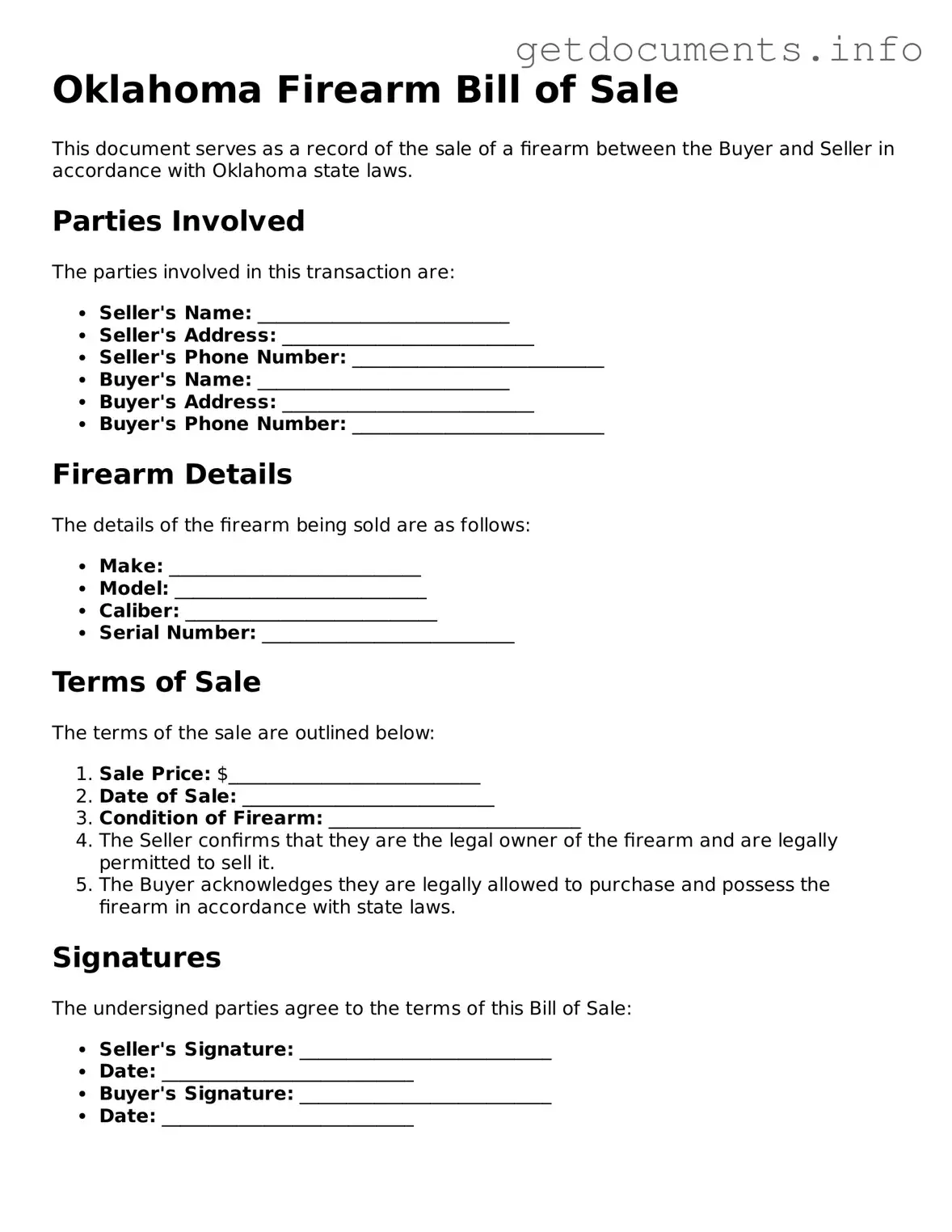Free Firearm Bill of Sale Template for Oklahoma
The Oklahoma Firearm Bill of Sale form is a legal document that records the sale and transfer of firearms between individuals in Oklahoma. This form serves to protect both the buyer and seller by providing proof of the transaction and ensuring compliance with state laws. If you’re ready to complete your firearm sale, fill out the form by clicking the button below.
Access Firearm Bill of Sale Editor

Free Firearm Bill of Sale Template for Oklahoma
Access Firearm Bill of Sale Editor
Got places to be? Complete the form fast
Fill out Firearm Bill of Sale online and avoid printing or scanning.
Access Firearm Bill of Sale Editor
or
⇩ PDF File
